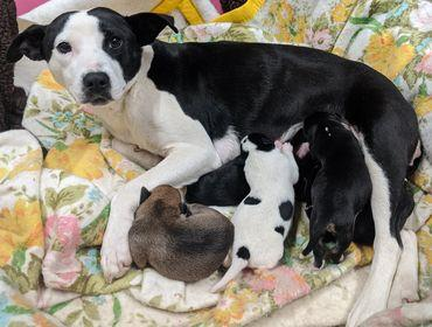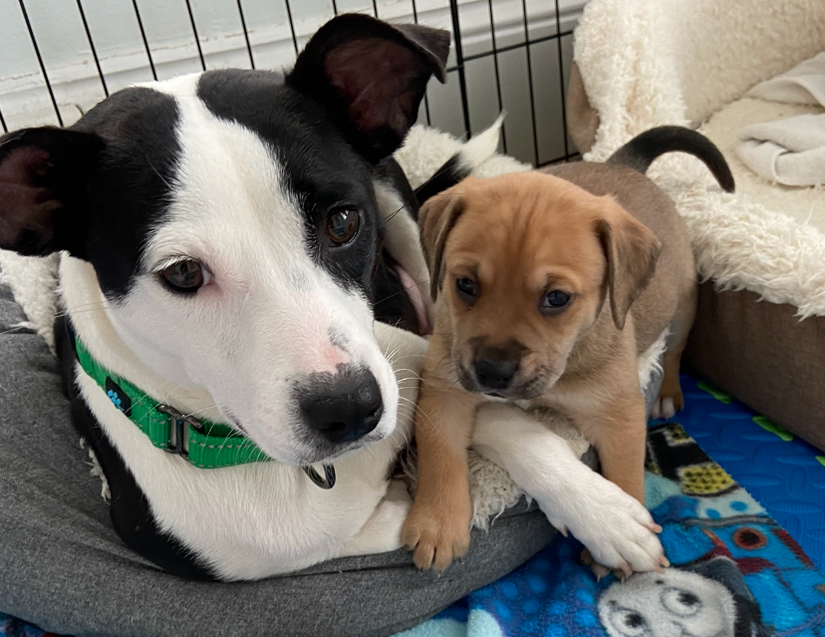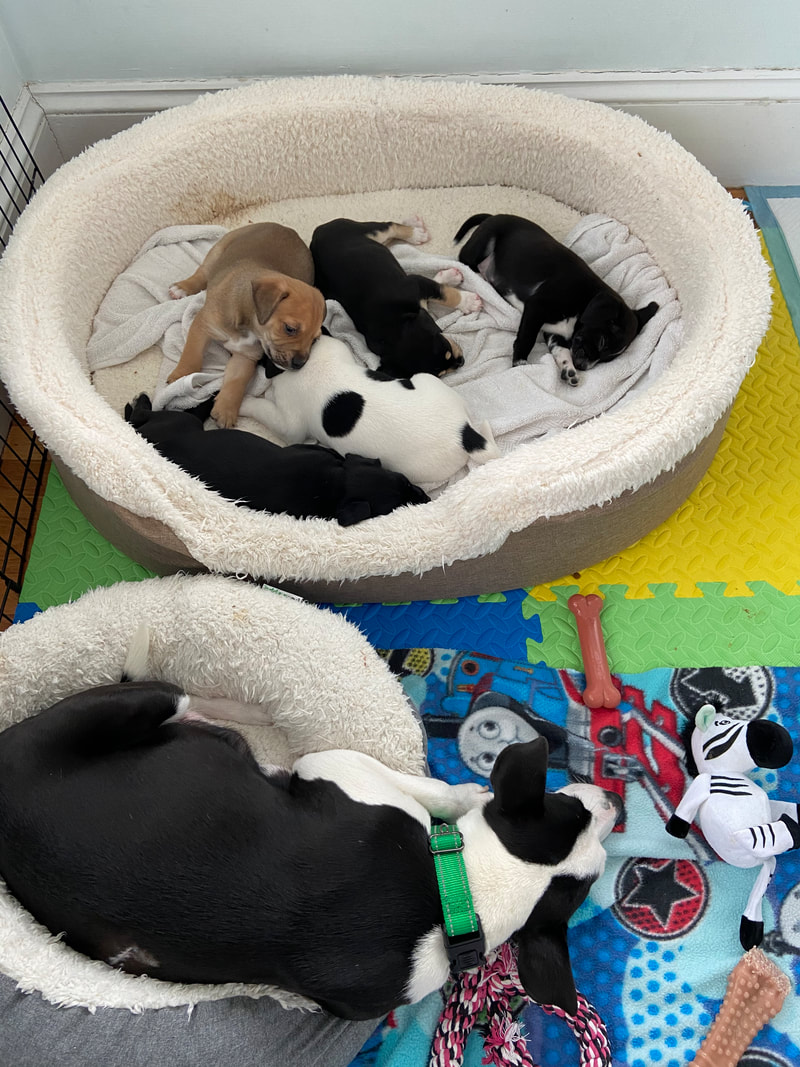|
Tuesday, February 23rd is World Spay Day, and today we're sharing the impact that spaying and neutering your pet can have on the homeless animal population. Around the globe, litters of homeless puppies and kittens live on vacant properties and roam the streets. In 2020, 1,146 of Cape Ann Animal Aid's 1,195 adopted animals were transferred to us through our Safe Harbor Program, escaping a myriad of situations and possible euthanasia due to overcrowding. Heather from transport partner Road Trip Home Animal Rescue in Georgia, explains: "If everyone in Georgia spayed and neutered their animals, our shelters would not be overflowing, there would not be strays all over the roads losing their lives to cars, and there would be no need for transport rescues! What a glorious day that will be... until then, we continue our mission to help animals find homes no matter how far the journey"
Cookies spay procedure falls on World Spay Day this year, and Cape Ann Animal Aid provides spay surgeries for many dogs just like her every year. In 2020, we spayed over ten mom dogs and cats who had either come to us pregnant, or recently had a litter of unwanted puppies or kittens. Overpopulation doesn't just mean overcrowding - It often means that there aren't enough resources to go around. Speaking on the condition of Cookies and many homeless pets in Georgia, Ruth from Road Trip Home writes: "Another mama with newborn pups surrendered to animal control. Arriving at a shelter scared, hungry, and trying the best that she can to care for her tiny babies. Many of the pups that come into our shelter have health problems or diseases, and have received no health care. It is a struggle every day to fund the care needed to get these babies healthy and send them on to their new homes. The poor mama dogs live their entire lives raising babies and if not saved and brought to a shelter or rescue, succumb to heartworms or neglect."
Aside from the impact on the homeless animal population, there are also medical benefits for having your pets spayed and neutered. Dr. Alex Becket, CAAA Director of shelter medicine, elaborates: "Spaying your female dog will stop her from cycling, and also eliminate the possibility of ovarian and some uterine cancers. In addition, spaying your female dog will drastically decrease her chances of getting mammary cancer. Neutering your male dog will help prevent some undesirable behaviors such as roaming and marking, and will also help prevent problems later in life such as testicular diseases and cancers as well as prostate problems." To prevent overpopulation of cats and dogs in our area, Cape Ann Animal Aid has always spayed and neutered our animals prior to adoption. These surgeries are done as early as 8 weeks, provided the puppy or kitten is healthy, weaned from mom, and over 2.2 lbs.
0 Comments
|
Cape ann animal aid
An opportunity for you to learn more about the mission and programs of Cape Ann Animal Aid. Sharing candid insights, guest columns, breaking news, and of course, adorable photos of shelter animals. Archives
September 2022
Categories
All
|
Cape Ann Animal Aid • Christopher Cutler Rich Animal Shelter • 4 Paws Lane • Gloucester, MA • 01930 • 978.283.6055 • MDAR License #0102
© Copyright 2020 Cape Ann Animal Aid • All rights reserved.
© Copyright 2020 Cape Ann Animal Aid • All rights reserved.




 RSS Feed
RSS Feed
